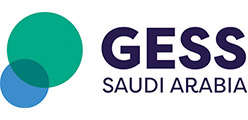Deloitte: Educational reform is an economic and social challenge for GCC governments
ith a fast growing population in the GCC countries, with close to 60% below 30 years old, the public sector is unable to sufficiently absorb school and university graduates as it could in the past. This presents an economic, education and social challenge for the region.
Deloitte has just released a new whitepaper titled ‘Education – Middle East Public Sector national necessities’ that tackles the challenges that Middle East and GCC governments are facing in education reform.
This Deloitte whitepaper clarifies what Middle East governments might do to support national educational missions. It tackles the educational reforms needed to prepare young people to enter private and public sector employment. The Deloitte whitepaper particularly focuses on GCC countries where expatriates make up the biggest proportion of the private sector workforce in Qatar and Saudi Arabia while Emiratis make up more than half the public sector.
The need to diversify employment choices explains why many GCC governments are implementing major reforms, including new curricula, improved teaching standards, increased professional freedom and enhanced use of Information and Communications Technology (ICT) to prepare young people for wider employment opportunities” explains Abdelhamid Suboh, consulting partner and Public Sector leader at Deloitte Middle East.
To achieve sustained economic and social growth, governments need to ensure educational systems are equipping students with skills that enable their countries to build successful diversified, knowledge-based economies that address the skills challenge facing them,” Suboh added.
Richard Barrett, director in consulting at Deloitte Middle East said, ‘Helping young people understand the options open to them through effective careers advice and guidance is essential. Treating teachers as the skilled professionals they are and supporting them to develop more flexible teaching styles and make creative use of technology should continue and increase.’
The Deloitte whitepaper provides recommendations on skills based education reform to support the moves underway in GCC countries aiming to develop world-class education to help meet the skills challenge. These are:
1. Raise teaching standards – help teachers manage change: - Schools need to introduce technology and active student participation, giving teachers world-class training and support that promote a student-centered, non-didactic approach and build the professional status of teachers.
2. Prepare students for progression: GCC countries should help students understand and be guided on career options whether in vocational training or university education to be prepared for a future that requires them to be globally competitive outside the constant support of the public sector. Comprehensive career advice is central to this.
3. Make greater use of Information Communications Technology (ICT): ICT has been shown to increase the ability of learners to work independently, organize their own work and improve their cooperative working skills. These are skills needed in the world of work and should be taught at all levels.
4. Increase tertiary education enrolment and promote technical and vocational education: There needs to be effective coordination between school and higher education in order to encourage more students to continue into post-school education. Governments also need to promote technical and vocational education in order to ensure that the future working population can fulfil the needs of the economy.
5. Bring all stakeholders on board from the beginning of reforms and provide strong leadership: Create forums where parents, teachers, education experts, practitioners and other members of the community can exchange ideas in order to bring everyone on-board.
it is only by having a highly skilled workforce that GCC countries will keep a competitive edge as the war for global talent accelerates. In terms of demand for education services, a growing national population as well as more expatriates attracted to the region mean that the education sector is set for continued strong growth in demand,” concludes Barrett.
To read the whitepaper, go to: http://bit.ly/1b7s3FA





